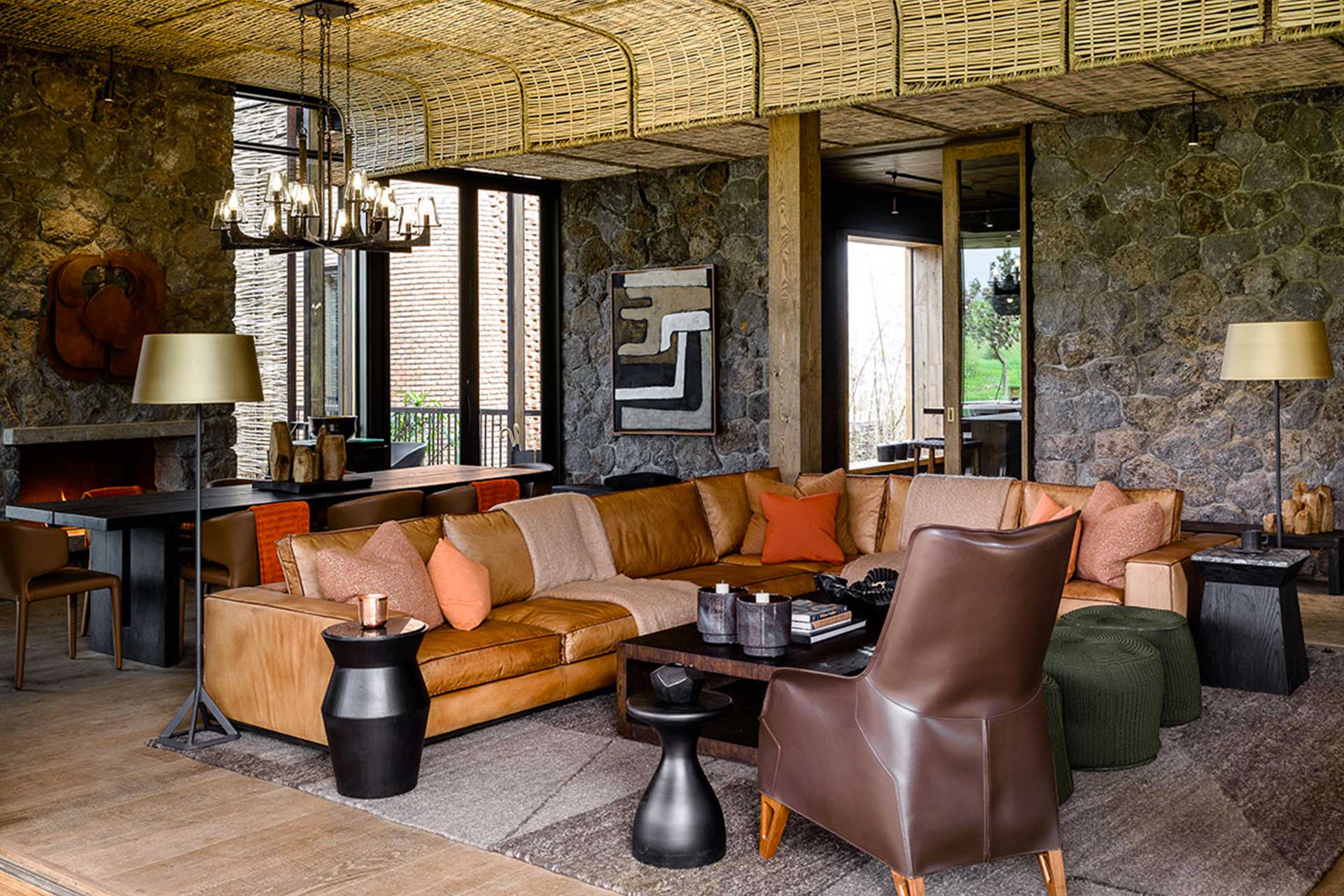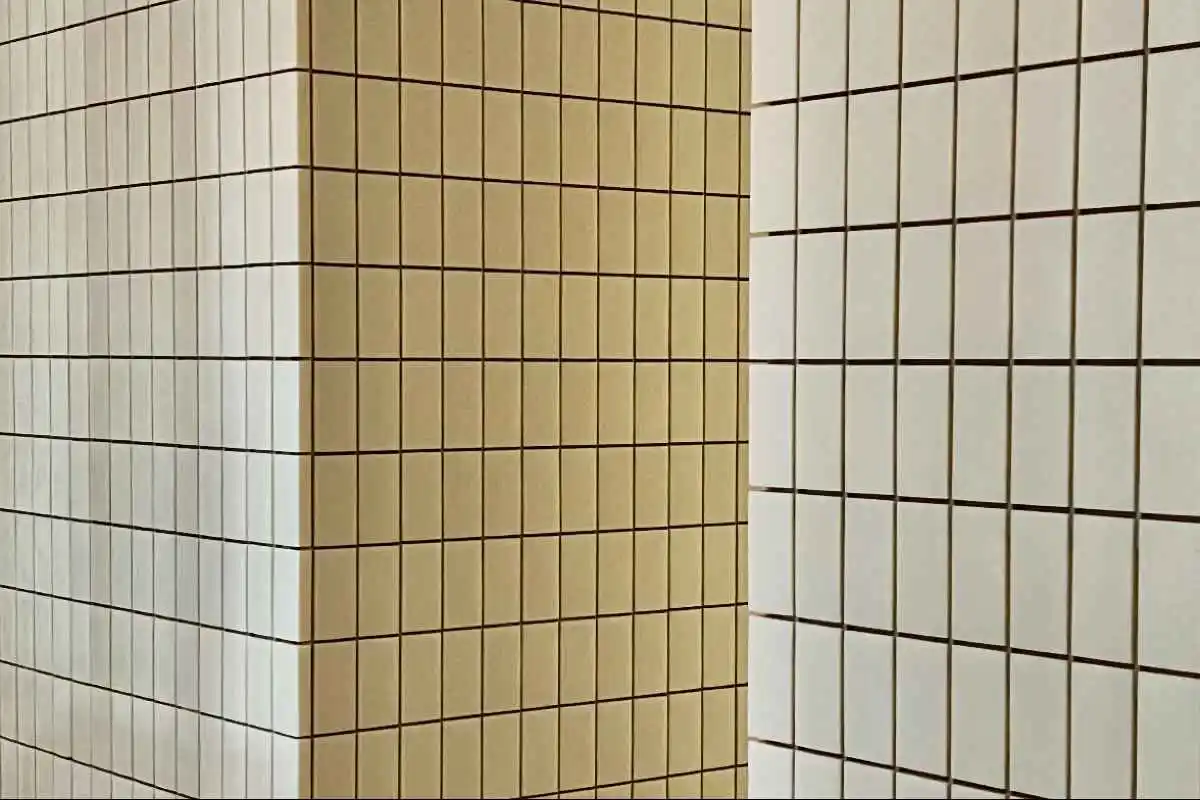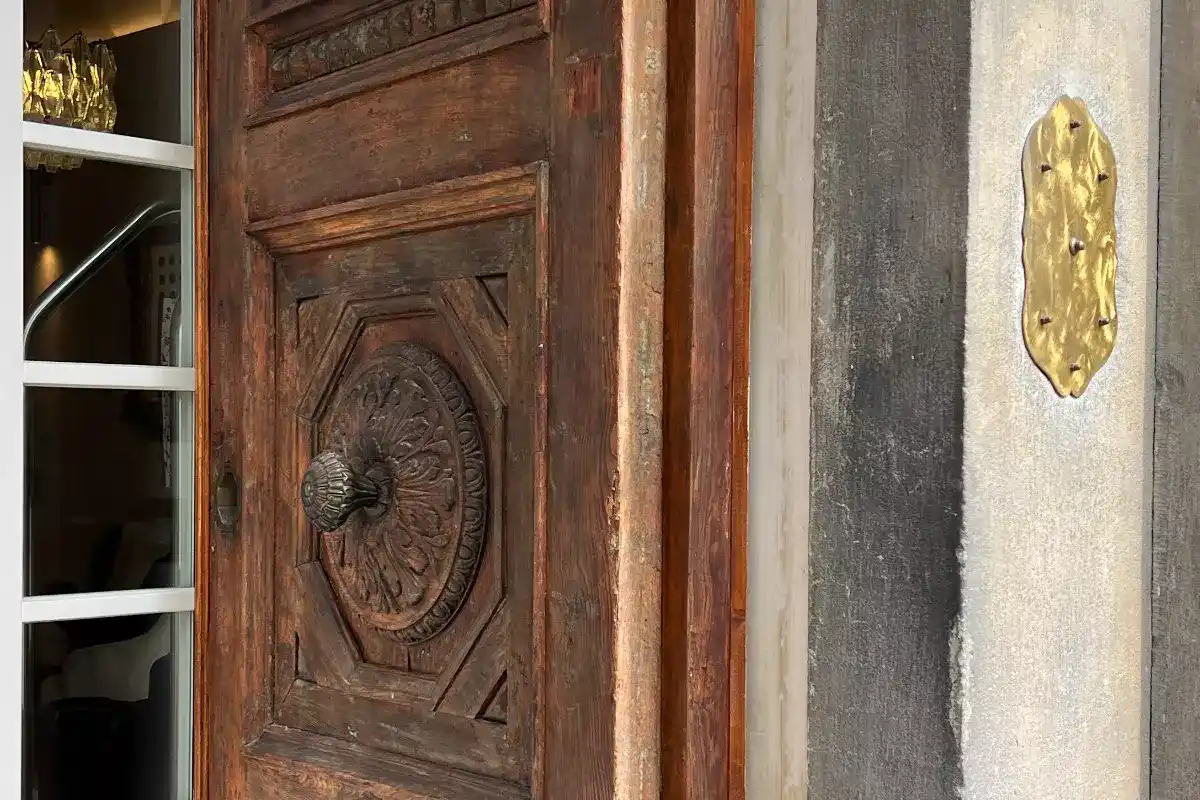Biodiversity, community and sustainability. Singita’s creed for a better future, concealed in the landscapes of South Africa
Singita Kwitonda Lodge and Kataza House, luxury resorts in the Volcanoes National Park in Rwanda
Our world is changing. We, therefore, have to adapt every day to a barrage of new stimuli and challenges. While we’re checking the last social media trend, stockpiling stress and anxiety, the land around us cries for help, poisoned by ages of exploitation and threatened by the climate crisis. In such a landscape it’s fundamental to revalue the very notion of caring, aimed at ourselves and the world. At Kwitonda Lodge and Kataza House, two luxury resorts based in the Volcanoes National Park in Rwanda, the Singita company built a way to accomplish either.
The Lodge and the House are located in Rwanda’s heart, on the borders of a natural reserve hosting almost a third of the world’s last mountain gorillas. Both of them offer to their customers a way to relax and reconnect with themselves and with nature, washing away the buzz of their daily lives.
Lampoon review: Kwitonda Lodge’s and Kataza House’s experience
The core of Singita’s business is, in the words of Lisa Carey, their appointed spokesperson, a tryptic of biodiversity, community and sustainability. Each one present into the Kwitonda Lodge’s and Kataza House’s experience. A constant effort of preserving the local fauna as well as collaborating with several founds and trust, devoted to wildlife protection activities, represents biodiversity.
Community is the core of Singita’s will to protect and nurture local traditions. Kwitonda Lodge’s and Kataza House’s customers can, in fact, witness stick carving and basket weaving performed by artisans. For the right price, they can even interact with a native tailor. The guests are also able to visit the village of Gasura, observing the procedures involved in preparing local foods. These include stomping cassava roots and grinding sorghum for flour.
Sustainability is achieved foremost by reducing the ecological footprint of all Singita’s activities, like Carey said. «We focus on zero waste, sustainable materials, reducing use of fossil fuels. Fifty percent of our lodges, in fact, work on solar power, sustainable transport, local and sustainable food». In the Rwandan branch of the company this concept is relevant even in the very structure of the buildings. As Dr. Andrea Ferry, Singita’s sustainability lead, says «every element of the build was carefully researched and considered. From the local bricks and volcanic rock used to build the walls, to the mechanical ventilation system. The latest draws in fresh air to ventilate and cool the rooms, eliminating the need for carbon-heavy air conditioning».
Farm to table cuisine at Singita
The food is always farm-to-table, grown in the fields or purchased in local markets. The recipes are also typical. The, therefore, allow the guests to savor plates like brochettes (skewered cubes of meat, chicken or fish), pan-seared tilapia (the freshwater fish favored in Rwanda), cassava-leaf velouté and grilled gourd (a cucumber-like vegetable), Musanze fruit, ikivuguto (Rwanda’s buttermilk) and ikitoke (a starchy Rwandese banana). Such a dedication in preserving the local traditions and ecosystem is received with particular skepticism by who identifies today’s tourism with a new form of colonialism.
Foreign visitors come to the land demanding a tailored experience, turning the native heritage into a playground for the tourists. Singita, however, has a very different point of view. «High value-low volume ecotourism is the best model for conservation», says Lisa Carey. Most of their personnel is local. Their Lodges are, therefore, a way to create jobs in a land devoid of opportunities. Singita runs two culinary schools, soon to be three, giving to the natives a unique opportunity to emancipate themselves.
Even if some can find this approach similar to French and English colonists’ rhetoric, who claimed to offer progress to ‘undeveloped societies’, it’s undeniable that South Africa contributed one-and-a-half million jobs and R425.8 billion to the economy in 2018, making it the largest tourism economy in Africa, according to the World Travel & Tourism Council’s. A place able to reconnect oneself with nature, far from the lights of contemporary society, Singita’s Kwitonda Lodge and Kataza House await all the customers eager to get in touch with their inner self without renouncing to modern comforts.
Singita Kwitonda Lodge and Kataza House
Ruhengeri, Rwanda.
Singita Kwitonda Lodge and Kataza House are two luxury resorts based in the Volcanoes National Park in Rwanda opened by the Singita company.




















